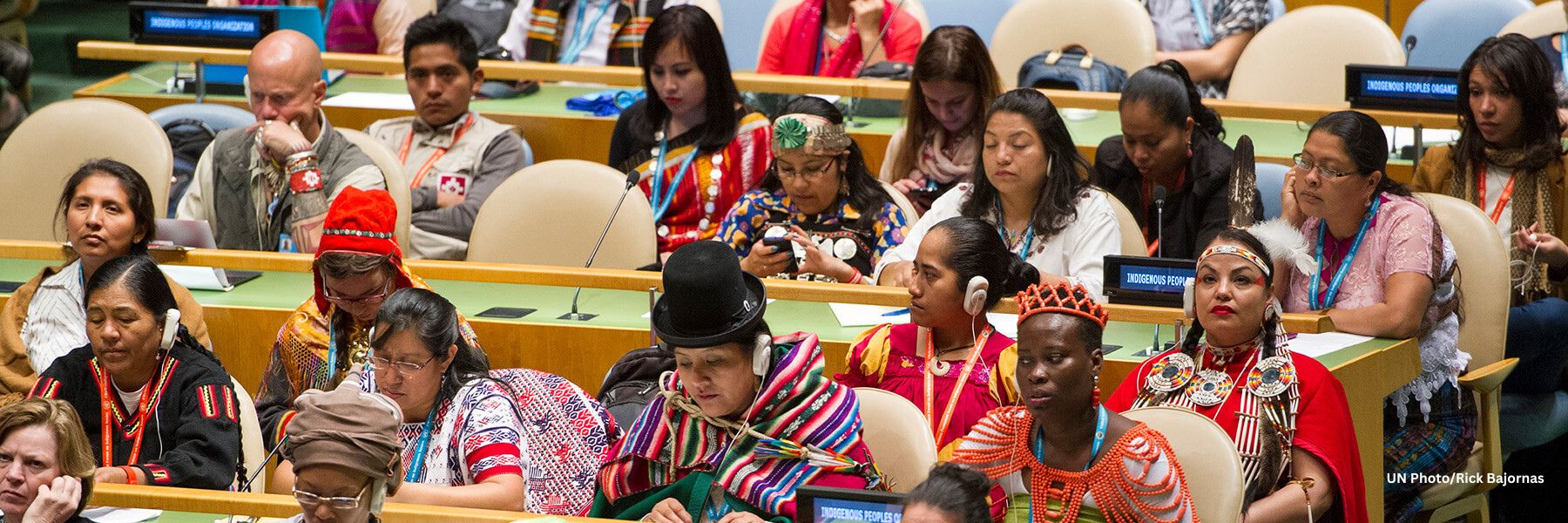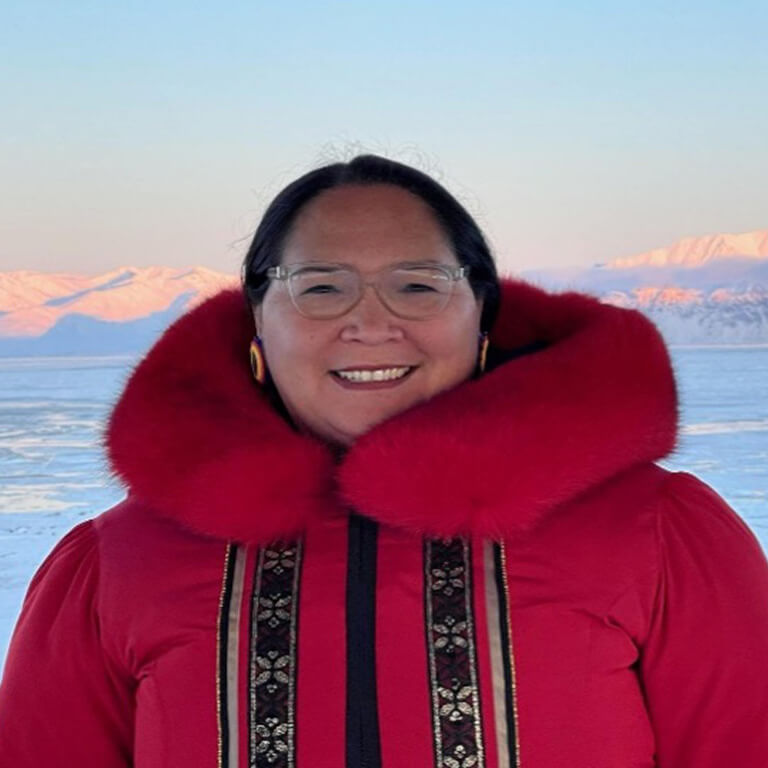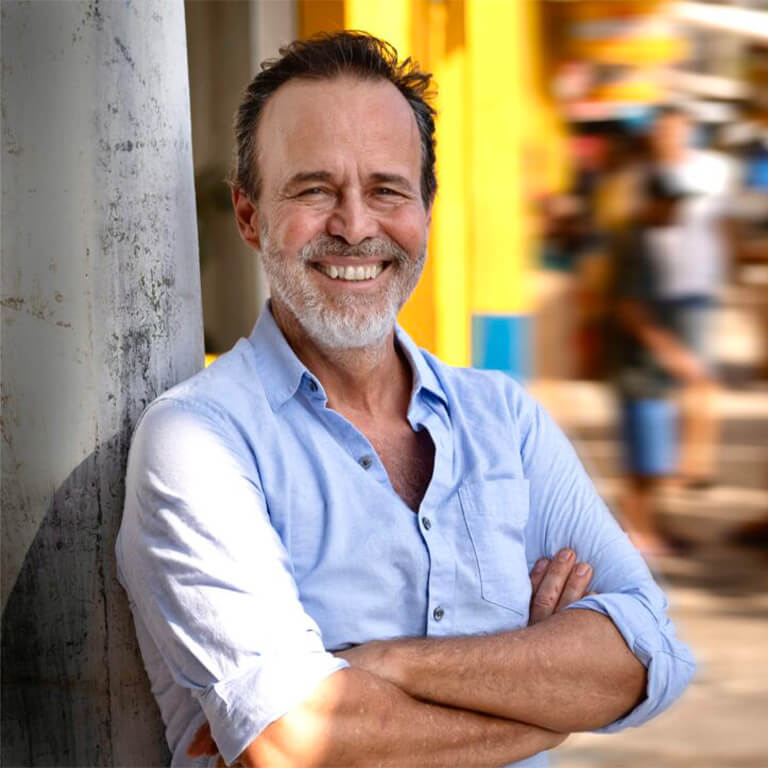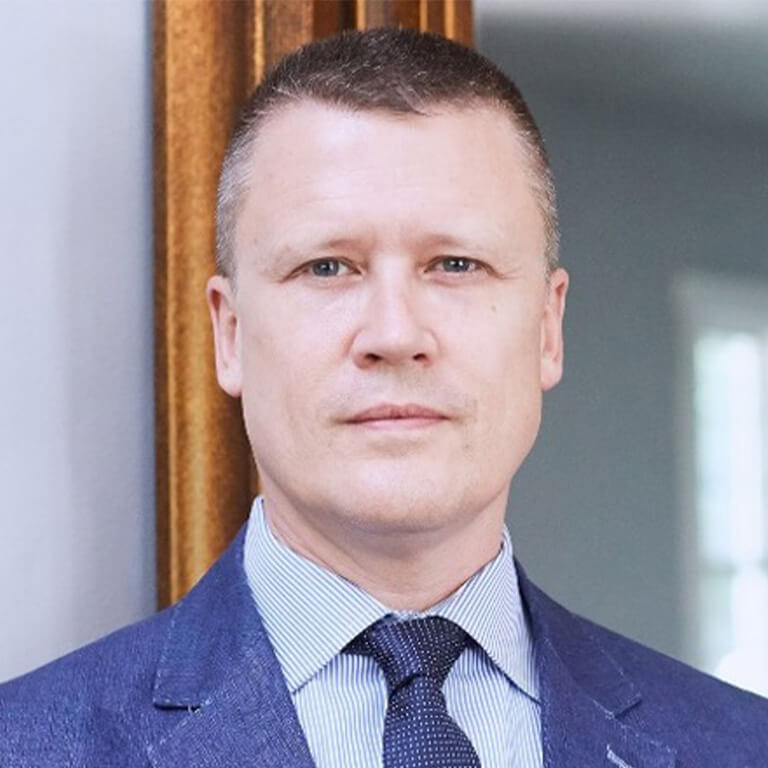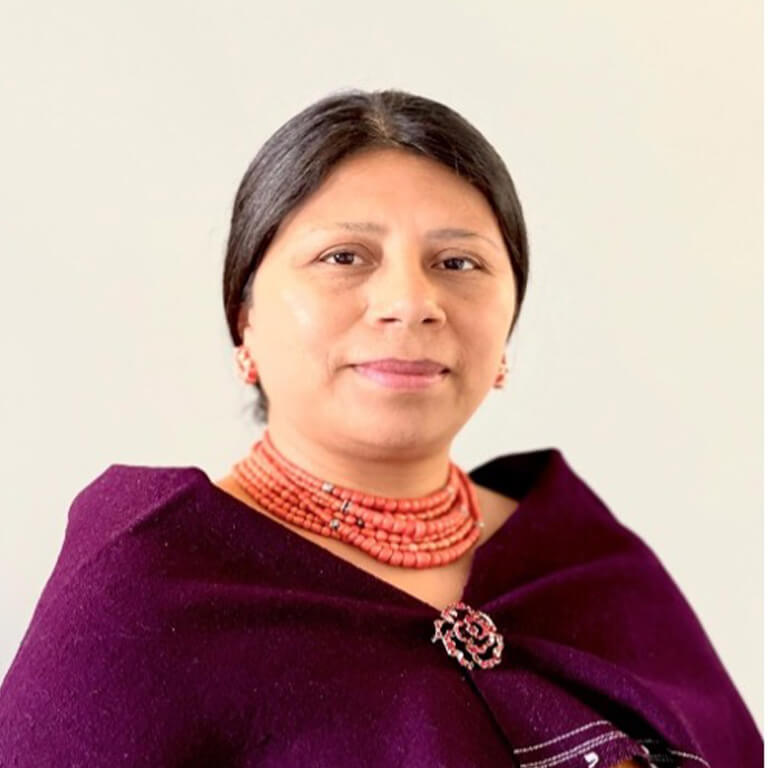| 8:30am–9:00am | Welcome/Coffee |
| 9:00am–11:00am | Individual Papers: Indigenous Perspectives on Law and Justice
Room: HLS 005
9:00 am - 9:30 am
State and Criminal Justice System: Experience of Indigenous People in India
Ronica Vungmuankim, University of Tübingen
9:30 am - 10:00 am
A Juxtaposition of Indigenous and Western Perspectives on the Concept and Practice of Dispensing Justice
Tezenlo Thong, Independent Scholar
10:00 am - 10:30 am
The Protection of Indigenous Minorities in the Congolese Legal Order: A Critical Study of the Constitutional and Legal Frameworks
Odiko Lokanga Charles & Tshiamala Banungana Christian, University of Kinshasa |
| 9:00am–11:00am | Individual Papers: Media, Technology, and Linguistic Data Sovereignty in Language Revitalization
Room: HLS 1122
9:00 am - 9:30 am
Using Video as a Research Method to Revitalize Endangered Languages
Gabina Funegra, The University of New South Wales
9:30 am - 10:00 am
Data Sovereignty as a Foundation for Indigenous Language Material Development
Ashleigh Surma, Elliot Thornton, Logan Swango, and Dorothea Hoffmann, The Language Conservancy
10:00 am - 10:30 am
Medición de la reversión del desplazamiento del Ckunza de San Pedro de Atacama: una primera aproximación (‘Measuring the Reversal of the Displacement of the Ckunza Language of San Pedro de Atacama: A First Approximation’)
Elizabeth Mónica Torrico Ávila, Universidad de Antofagasta Roberto
Guerra-Mejía, Universidad Nacional Autónoma de México |
| 9:00am–11:00am | Individual Papers: Technology and Language Documentation and Revitalization
Room: HLS 1128
9:00 am - 9:30 am
Mobile Picture Dictionary: A Tool for Decolonizing Education, Second Language Acquisition, and Indigenous Language Revitalization
Daw Sing Nue Marma, University of Cincinnati
9:30 am - 10:00 am
Digitization of Folk Literature by Citizen Archivists in Indic Languages: A Look at the Indic Oral Culture Project
Amrit Sufi, Independent Scholar
10:00 am - 10:30 am
Mipaselak to Sowal no Pangcah: A Digital Ethnography of Two Open ‘Amis/Pangcah Language Platforms’, ‘Amis MoeDict’ and ‘Amis Wikipitiya’
Coleton Hast, National Dong Hwa University
10:30 am - 11:00 am
Preserving Indigenous Languages through Community-Led Digitization
Winston Scott, Mayan Languages Preservation Project |
| 9:00am–11:00am | Individual Papers: Decolonizing Education and Integrating Indigenous Knowledge
Room: HLS 1106
9:00 am - 9:30 am
Kinship & Gifting: An Indigenous Fijian Framework of Teaching & Learning
Sereima Baleisomi and Laisa Vuetaki, Fiji National University
9:30 am - 10:00 am
Decolonizing Pakistan’s Education: The Integration of Indigenous Languages as Medium of Instruction
Yamna Khan, Sir Syed University of Engineering & Technology Karachi
10:30 am - 11:00 am
Indigenous Literature in the Spanish Undergraduate Curriculum in the United States
Ana María Ferreira, University of Indianapolis |
| 9:00am–11:00am | Individual Papers: Indigenous Pedagogy and Cultural Knowledge Preservation
Room: HLS 003
9:00 am - 9:30 am
Estimulación, Enseñanza y Aprendizaje en el Mundo Indígena Andino; Caso Ocpote - Ecuador Ñuka Yachag Ñukanchipak Yachag Tukaypak Yachag
Bacilio Segundo Pomaina Pilamunga, Universidad Intercultural de las Nacionalidades y Pueblos Indígenas Amauta Wasi Ecuador
9:30 am - 10:00 am
Educating Indigenous Children in the Ancient Knowledge of the Coca Leaves Rites: ESX/COCA
Alexandra McNichols-Torroledo, Independent Public Speaker, Journalist and Photographer
10:00 am - 10:30 am
‘Barriers to Effective Literacy Development and Solutions in Indigenous Communities in Cameroon: The Case of the Mbororo Women in the North West East and Adamawa Regions’
Kingah Kemdjei Petronilla, University of Yaounde I Cameroon
10:30 am - 11:00 am
Attributional Beliefs of Native American Teachers: Understanding Student Success and Struggle in Mathematics
Selim Yavuz, Erik Jacobson and Mariela Duarte Mejia, Indiana University |
| 9:00am–11:00am | Individual Papers: Indigenous Land Defense and Resistance
Room: HLS GA2134
9:00 am - 9:30 am
Oxaca y la Defensa de la Tierra: Una Mirada Retrospectiva
Óscar Rodríguez Rodríguez, Universidad de Guanajuato
9:30 am - 10:00 am
The Sacred Motherland: Indigenous Discourse and Solidarities in the TIPNIS Road Conflict in Bolivia
Danny Daniel Mollericona Alfaro, Yale University
10:00 am - 10:30 am
'O Haumea Nui Āiwaiwa: J. W. H. I. Kihe’s Intellectual Sovereignty and the Biopolitics of Kānaka Maoli Wahine Disenfranchisement in the Territory of Hawaiʻi
Kamalani Johnson, University of Hawai’i at Mānoa
10:30 am - 11:00 am
Methylmercury: The Poison That is Killing Indigenous Communities in America Produced by Hydroelectrics
Alexandra McNichols-Torroledo Independent Public Speaker, Journalist and Photographer |
| 9:00am–11:00am | Panel Presentations
Room: HLS 1112
Braiding Bodewadmi Knowledges & Science: Indigenizing Narratives & Methodologies
Chair: David Nichols
Matthew Beil, University of Kansas
Kay Kakensasot Mattena, University of Massachusetts, Amherst
Bodwewadmi Historical Practice in Language and Tradition
Matthew Beil, University of Kansas
Braiding Archaeology and Body Modifications: CBPR with the Potawatomi Nation Tattoo Society
Kay Kakendasot Mattena, University of Massachusetts, Amherst |
| 9:00am–11:00am | Panel Presentations
Room: HLS 1118
Thinking with Indigeneity in Tibetan Education and Research
Tsehuajab Washul, University of Virginia Bernard Perley, University of British Columbia, The Canadian Anthropology Society (CASCA)
“We Intend to stay on our ancestral land”: Restoring Homeland by Revitalizing Intergenerational Relationships in Eastern Tibet
Huatse Gyal, Rice University
Recognizing the Face of Indigenous Homeland: A Tibetan Pedagogy of the Land
Tashi Dekyid Monet, University of Virginia
Constructs of Childhood in Tibetan Contexts: Holistic Parenting and Education of Pastoralist Children
Tsepakjab Washul, University of Virginia
Indigenous Knowledge and Inclusion: Examining Tibetan Students’ Experiences in China’s Higher Education
Dak Lhagyal, University of Melbourne |
| 9:00am–11:00am | Panel Presentations
Room: HLS 1134
Indigeneity and Bureaucracy in Asia
Discussant:
Andrew Carruthers, University of Pennsylvania
Aaron Su, Princeton University
Yu Liang, Cornell University
Xiao Schutte-Ke, University of Pennsylvania
Kamal Kariem, Williams College |
| 11:00am–12:00pm | Keynote Address 2: Indigenous Languages and the Environment
Room: Shreve Auditorium
K. David Harrison Vin University, National Geographic Society |
| 12:00pm–1:00pm | Lunch on Your Own
Two food trucks will be available near the conference venue |
| 1:00pm–2:30pm | Individual Papers: Indigenous Rights and Environmental Conflicts
Room: HLS 1112
1:00 pm - 1:30 pm
The Fight for Indigenous Rights in the New Indonesian Capital City of Nusantara: Cronyism, Deforestation, Indigenous Marginalization, and Ecological Disasters
Calvin Ho, City University of Hong Kong
1:30 pm - 2:00 pm
Taming the Tusker: Class, Caste, and Politics of Indigenous Community’s Struggle on Human-Animal Conflict in Southern India
Abhilash Thadathil, Centre for Development Studies Thiruvananthapuram Kerala
2:00 pm - 2:30 pm
Cultures, Conflicts, and Communities: A Study of the Biocultural Rights of the Indigenous 42022 Peoples in the Indian State of Manipur and the Balochistan Region of Pakistan
Dr. Rohtash, Panjan University
Aneesha Singla, Panjab University |
| 1:00pm–2:30pm | Individual Papers: Identity, Knowledge, and Resistance
Room: HLS GA2134
1:00 pm - 1:30 pm
The Term “Western Medicine”: An Overgeneralization That Neglects Indigenous Traditional Medicine
Carlos Alberto Rosas-Jiménez, McMaster University, Hamilton, Canada
1:30 pm - 2:00 pm
Indigeneity in Exile: Christianity Sanctuary and the Articulation of Kawthoolei Nation in a Rustbelt Town
Chao Ren, Hamilton College
2:00 pm - 2:30 pm
Learning from Moʻo to (Re)imagine Research: A Kanaka Ōiwi Methodology
Austin Morgan Kainoa Peters, Purdue University |
| 1:00pm–3:00pm | Individual Papers: Cultural Survivance & Agency in Social Media
Room: HLS GA2067
1:00 pm - 1:30 pm
Cultural Survivance in the Pohnpeian Diaspora
Jayvaughn Fredrick Peter, Purdue University
1:30 pm - 2:00 pm
Auto-Translation Can be Sick: The Mistranslation of Igbo Words in Social Media Labels
Chimee Adịọha, University of California, Irvine
Justice Adịọha, Sheffield Hallam University
2:00 pm - 2:30 pm
Revitalizing Voices: The Video-Poem Marathon in Indigenous Languages by PEN International, Making Silenced Languages Visible
Urtzi Urrutikoetxea, GARABIDE & PEN International
2:30 pm - 3:00 pm
Personhood and Agency in Indigenous Films
Anthony Adah Minnesota State University Moorhead |
| 1:00pm–2:30pm | Individual Papers: Indigenous Activism, Resistance and Solidarity in the Diaspora
Room: HLS 1128
1:00 pm - 1:30 pm
Chakma Musical Activism: Building Indigenous Consciousness and Contesting State Propaganda in Postcolonial Bangladesh
Dinalo Chakma, University of Florida
1:30 pm - 2:00 pm
Kurds as an Indigenous People: Their Domestic Resistance and Global Contribution to Cultural and Environmental Protection
Dr. Qaraman M. Hasan, University of Houston Law Center |
| 1:00pm–3:00pm | Individual Papers: Indigenous Resistance in the Face of Colonialism
Room: HLS GA3134
1:00 pm - 1:30 pm
Chuvash: An Indigenous Language as a Weapon of the Weak During the War in Ukraine
Aleksei Rumiantsev, Indiana University Bloomington
1:30 pm - 2:00 pm
Finding Sovereignty: Relational Reciprocity in Re-Dressing Archives
Keshia De Freece Lawrence, Harvard University
2:00 pm - 2:30 pm
Between a Name and a Number: The Story of a Colonial Erasure
Abdul Aijaz, Indiana University
2:30 pm - 3:00 pm
Reclaiming Hesquiaht Language and Land: Stories of Language Revitalization and Redeveloping Understandings of Hesquiaht Places
Chuutsqa L. Rorick, Hesquiaht Woman, Hesquiaht Language Program |
| 1:00pm–2:30pm | Individual Papers: Indigenous Education, Identity and Cultural Activism
Room: HLS GA3067
1:30 pm - 2:00 pm
Indigenous Futurisms: Kichwa Hip-Hop and Contemporary Cultural Activism in the Ecuadorian Andes
Amy E. Chalán Vacacela, Harvard University
2:00 pm - 2:30 pm
Teaching Indigenous Peruvian Dance to Non-Indigenous People to Conserve the Values
Rubén Pachas, School of the Art Institute of Chicago |
| 1:00pm–3:00pm | Individual Papers: Language Maintenance, Shift, and Mother Tongue Education
Room: HLS 003
1:00 pm - 1:30 pm
Language Shift and Maintenance and the Role of Mothers in Gujri Language in Home Domain, Pakistan
Mujahid Shah, Abdul Wali Khan University
1:30 pm - 2:00 pm
First Language-Based Multilingual Education in Africa and Asia and the Indigenous Language Revitalization Movement: Bridging Gaps, Creating Synergies
Kirk R. Person, Mahidol University (Thailand) and SIL International
2:00 pm - 2:30 pm
La Voluntad: Supervivencia del Quechua en Argentina
Lelia Inés Albarracín, Universidad Nacional de Santiago del Estero
2:30 pm - 3:00 pm
La Organización de la Comunidad Kichwa Otavalo en Chicago y la Importancia de la Lengua Materna
Tamia Muenala, Kichwa Community of Chicago
Gladys De la Torre, Kichwa Community of Chicago |
| 1:00pm–3:00pm | Interactive Workshop
Room: HLS GA1060
1:00 pm - 2:00 pm
What Makes a Language Legitimate?: Pedagogical Activities Focused on Language Preservation and Revitalization in Morocco
Jennifer Lund, University of Michigan
Amy Frontier, Pioneer High School
Abderrahim Er-Ragragi, University of Michigan
2:00 pm - 3:00 pm
Reclaiming Indigenous Languages and Stewardship in a Changing Arctic and Beyond
Rochelle Adams, Alaska Public Interest Research Group Language Access Tea
Annauk Olin, Kiuġzat Consulting LLC
Erin Willahan, Alaska Public Interest Research Group Language Access Tea
Veri di Suvero, Alaska Public Interest Research Group Language Access Tea |
| 1:00pm–3:00pm | Roundtable Discussions
Location: HLS 1106
1:00 pm - 2:00 pm
Troubling the Community-Based Research Timeline: Reflections from Collaborative Indigenous Language Projects
Nathalie Martinez (Chair), University of Illinois Urbana-Champaign
Gerónimo Ramirez & Francisco Ajanel Vicente, Comunidad Sol
Juana Juan-Pedro & Engracia Juan Sebastian, Pixan Konob’
Maisa Taha & Lisa Lynn Brooks, Montclair State University
Robert Henderson, University of Arizona
Juan Ajsivinac Sian, Kaqchikel Amaq
2:00 pm - 3:00 pm
Musical Language Activism in Mesoamerica and Beyond
Benjamin Daniel Salinas (Organizer), Brown University
Jonah Francese, University of Chicago
Roberto Young, University of Chicago
Bethany Battafarano, University of Chicago |
| 2:30pm–4:00pm | Individual Papers: Indigenous Rights and Territorial Identity
Room: HLS 1112
2:30 pm - 3:00 pm
Introduction and Exhibitions on the Ancient Tibetan Thread-Crosses: The Mystical Art of Rgyang Bu or Ljang Bu, and Namkh
Sonam Nyima, Geshe Sherab Tenzin, Menri Monastery, Shimla, Himachal Pardesh India
3:00 pm - 3:30 pm
Reorienting the Discussion on the Implementation of Consultation and Free, Prior and Informed Consent in Latin America
Leonardo J. Alvarado, Fort Lewis College
3:30 pm - 4:00 pm
The Complexity of Identities and Narratives Through the Lens of Native American and Indigenous Muslim Stories
Petra Alsoofy, Institute for Social Policy and Understanding |
| 2:30pm–3:30pm | Individual Papers: Women’s Mental Health, Well-Being and Spirituality
Room: HLS 007
2:30 pm - 3:00 pm
Understanding the Mental Health Challenges, Service Needs, and Potential Interventions for Women from the Ethnic Indigenous Irish Traveller Community Presenting to Emergency Departments (ED) with Suicidal Ideation in Ireland
James O. Mahony and Katerina Kavalidou, University College Cork
Leah Quinlivan, The University of Manchester
Dr. Joseph Tighe, Bilibio Clinic, Mona Vale, NSW, Australia
3:00 pm - 3:30 pm
Shâmaran’s Legacy: Kurdish Indigeneity, Feminine Spirituality, and Contemporary Resonance
Dilsa Deniz, Independent Researcher |
| 2:30pm–4:00pm | Individual Papers: Indigenous Peoples Narratives, Identities and Climate Change
Room: HLS 009
2:30 pm - 3:00 pm
“To be Bahnar, we have to be equal with the Yuăn (Kinh people)” Bahnar youth’s education: contested identity between tradition, colonialism and modernism
Huy Tran-Phuoc-Lam, Vin University
3:00 pm - 3:30 pm
Climate Change and Global Environmental Governance: The History and Role of Indigenous Peoples Participation in the UNFCCC
Beatriz Lima Ribeiro, Indiana University Bloomington
3:30 pm - 4:00 pm
Degrees of Indigeneity: Indigenous Identities in the Art of Cusco
Siraye Herron, The University of Oklahoma
|
| 2:00pm–4:00pm | Panel Presentations
Room: HLS 1118
2:00 pm - 4:00 pm
Creating a Positive and Safe Environment for Language Revitalization: Insights from the All Our Kin Collective at Fort Lewis College
Janine Fitzgerald, Trish Hamilton, Laurel Grimes, Moriah Arthur, Sarah Silins, Caylin Ingram, and Kevan Joe Fort Lewis College
A New Framework for Intergenerational Language Sustainability Skills Training
Darren Flavelle and Jordan Lachler University of Alberta |
| 2:00pm–4:00pm | Panel Presentations
Room: HLS 1134
2:00 pm - 4:00 pm
Indigenous Oral Tradition, Film, and Literature: P’urhépecha and Zapotec Sovereignty/Autonomy in Mexico
Angelica Waner, Estefania Morales, Adelaida Rama, University of Illinois Urbana-Champaign, University of California Los Angeles
Becoming the Iguana: Guchachi’ Reza, Zapotec Identity, and Autonomy
Angelica Waner, Chancellor’s Postdoctoral Research Associate (Chair/Moderator and Presenter), University of Illinois, Urbana-Champaign
Stories from the Lake: Cultural Sovereignty in the P’urhépecha Region
Estefania Morales, University of California, Los Angeles
Cherán K’eri: Where the Fire Lives and Feeds on Memory
Adelaida Rama, University of California, Los Angeles
|
| 4:00pm–5:00pm | Keynote Address 3: Locally-Based, Globally Relevant: Indigenous Knowledge, Values, and Practices for Nature
Room: Shreve Auditorium
Eduardo S. Brondizio Center for the Analysis of Social-Ecological Landscapes, Indiana University |
| 5:30pm–8:00pm | Saturday Night Social Event
Room: HLS Atrium
5:30 pm - 8:00 pm
Dinner & Indigenous Musical Performance by Nayo Ulloa
Nayo Ulloa, Peruvian musician, composer and poet |


